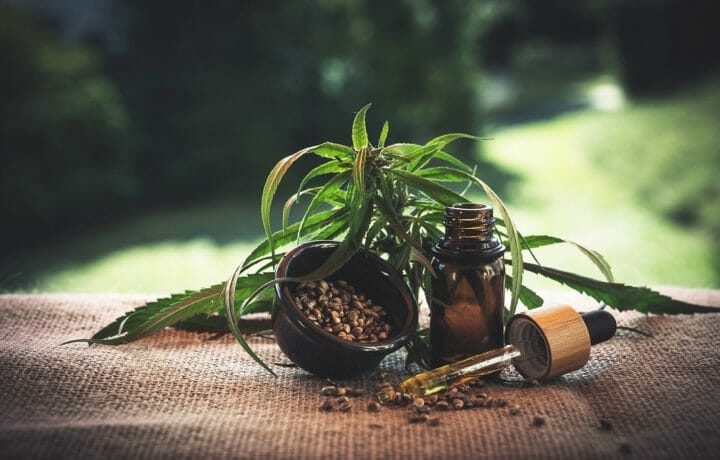Cannabis regulation is a rapidly evolving issue on the American legal landscape. In several states recent trends show growing acceptance of cannabis for medicinal or recreational purposes, or both. Attendant with these trends is an explosion in CBD products available for purchase thanks to congress lifting of a ban on growing hemp last year.
Unfortunately for many federal workers and government contractors holding security clearances, the introduction, prevalence, and use of CBD products could spell trouble. This particular issue is complex and confusing for a variety of reasons. Here is a breakdown to make sense of it all.
Cannabis 101
The word “hemp” is a variety of cannabis that contains 0.3% or less of THC (the compound associated with getting a user “high”). By contrast, the word “marijuana” is used to describe cannabis that contains more than 0.3% THC.
CBD (cannabidiol), another compound found in cannabis, has skyrocketed in popularity recently due to its purported health benefits without the intoxicating effects of THC. CBD is touted as a treatment for chronic pain, insomnia, and anxiety, among a host of other ailments. In 2018, even the Food and Drug Administration (FDA) joined the bandwagon by approving Epidiolex, a drug containing pure CBD for treating severe epileptic seizures.
Due to the demand for CBD, an entire market has sprung up where it is available in the forms of lotions, oils, coffee, cakes, cookies, and even vaping products.
State vs. Federal Law and CBD
CBD products can be made from either hemp or marijuana.
Hemp CBD products (with less than 0.3% THC) are legal under federal law but are still illegal in some states. Conversely, all marijuana CBD products are illegal under federal law, but are legal in some states.
Hemp was removed as an illegal substance under the Agricultural Improvement Act of 2018. That law legalized hemp and hemp-derived products under federal law, provided those products contain no more than 0.3% THC.
Marijuana, however, is still considered a controlled substance under federal law, pursuant to the Controlled Substances Act.
The Trouble with CBD Products
CBD products can be made from hemp or marijuana. Hemp based CBD oils, when used in low doses, are unlikely to result in a positive drug test because they often don’t contain high enough levels of THC for detection.
Although most CBD products claim to have under 0.3% THC (if they’re hemp based), the products remain unregulated, making the THC levels on their labels unreliable. To make matters worse, there is no standardization or FDA regulation of CBD doses. What that means is that some brands will recommend much higher doses than others, which in turn means potentially greater amounts of THC in a person’s body over time. One study found that nearly 70% of CBD products had inaccurate labeling, including some containing undisclosed amounts of THC.
This spells trouble for clearance holders (or potential clearance holders) ingesting or using CBD products, as they may test positive on a drug test even if they are following the dosing guidelines recommended by the product’s manufacturer.
The best way to mitigate the risk of a positive test for THC, barring abstaining from CBD use entirely, is to scrutinize how the CBD product is made. “Pure” CBD products including raw CBD oil or CBD isolates should contain no THC.
Your Clearance or Your Health?
For people holding or trying to obtain a security clearance, the current state of affairs with regard to CBD poses many challenges. Many are often in chronic pain and see CBD as a benign remedy to their suffering without realizing the potential risks to their careers. For example, take a story recently reported by NBC News in Washington about a decades-long federal law enforcement officer who failed a drug test after ingesting CBD oil for severe back pain:
“They can’t prove that I smoked marijuana, and I can’t prove that I didn’t.”
“The issue right now is the panel of testing,” he said. “Even with the sophisticated confirmatory testing, it doesn’t look for the metabolite of CBD. It only looks for the metabolite of THC.”
As the article makes clear, employers have no way to tell whether the THC in someone’s body originated from CBD or marijuana.
The reality is that CBD is something new on the market, the law is uneven about its regulation, and drug tests are not sophisticated enough to differentiate between marijuana and CBD use. This combination of factors is a recipe for chaos, which is amply demonstrated by the above-referenced example. Security clearance professionals need to be aware of this potential pitfall. Until CBD is uniformly regulated and drug tests made more accurate, clearance professionals would be well advised to either avoid CBD entirely, or at least consult their primary care physician for advice or a prescription.
This article is intended as general information only, and should not be construed as legal advice. Always consult an attorney regarding your specific situation.




